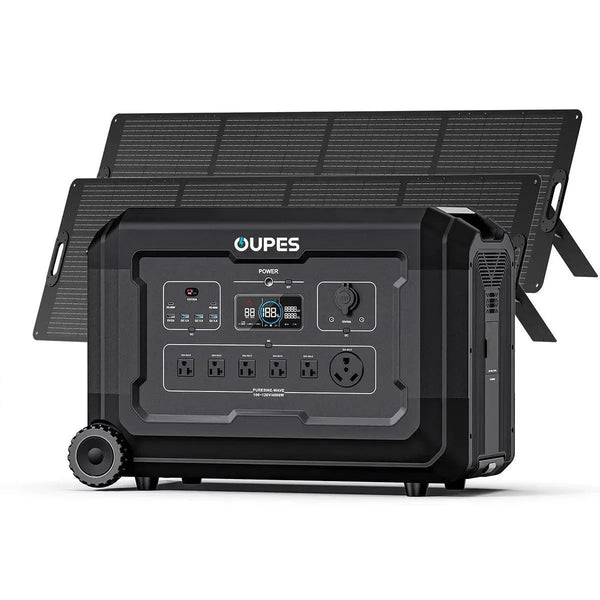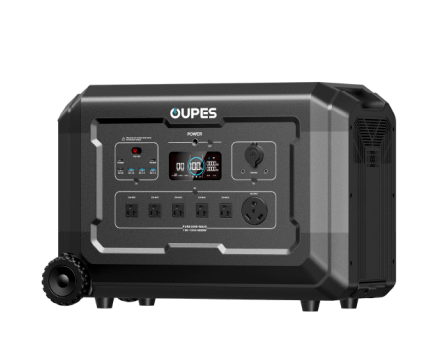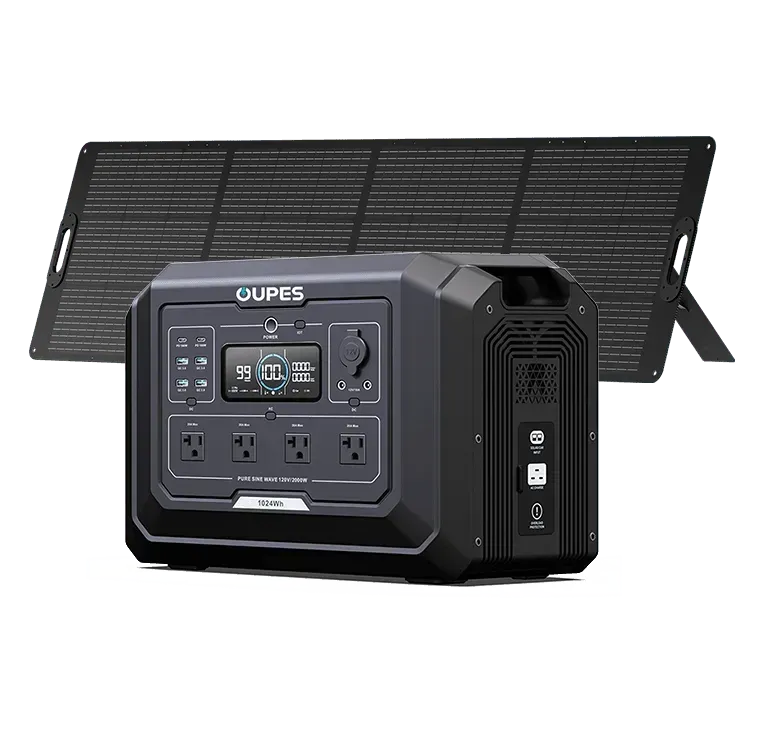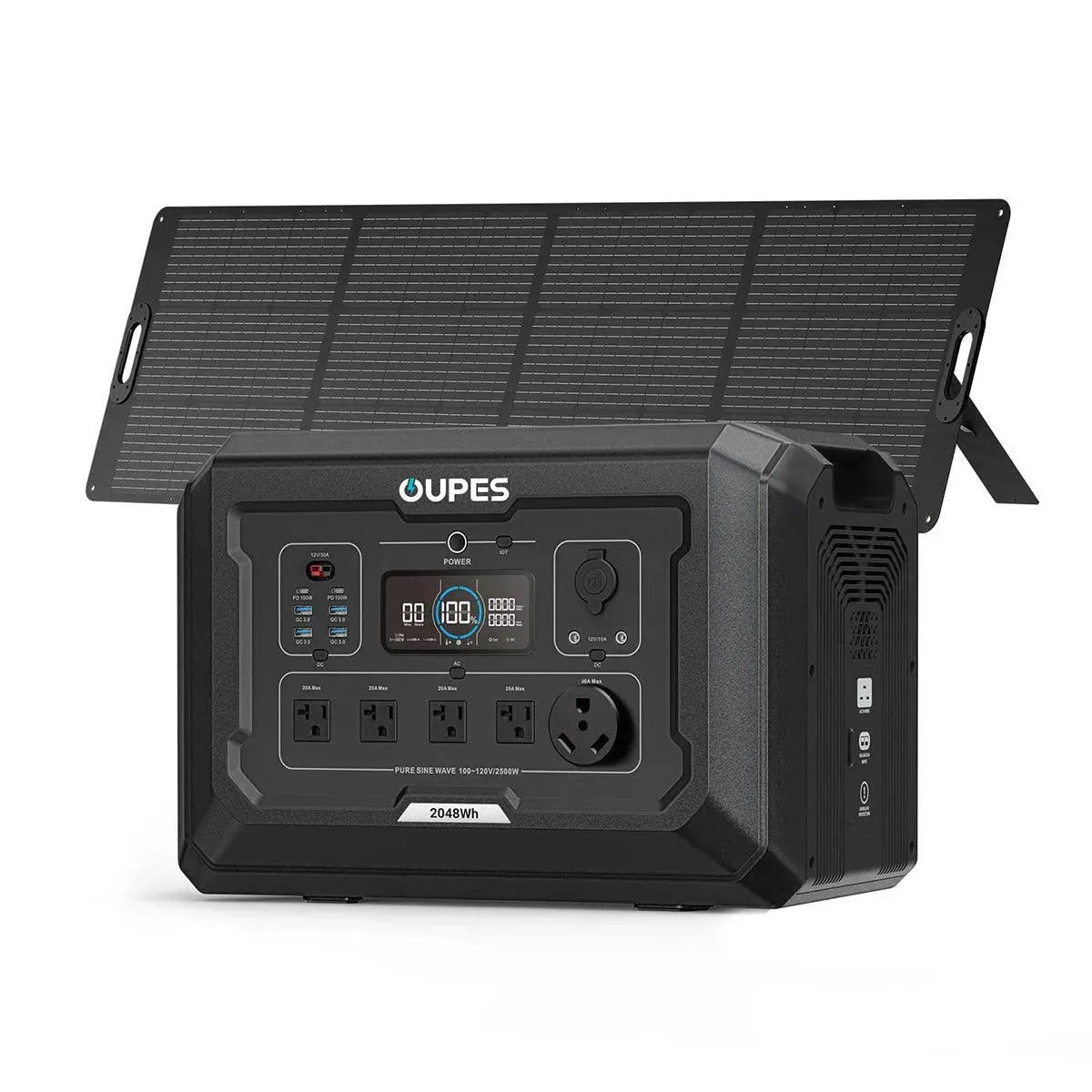
Power outages can happen at any time, leaving families concerned not only about the inconvenience of no lights or internet but also about one crucial issue: food safety. Refrigerators and freezers rely on continuous electricity, and without it, food can quickly spoil. Understanding how long your food lasts during a power outage helps reduce waste, prevent illness, and prepare your household for emergencies.
This article explores how long food stays safe in refrigerators and freezers without power, what steps you can take to preserve it longer, and how OUPES portable power stations provide peace of mind by keeping your appliances running during blackouts.
How Long Food Stays Safe in the Refrigerator
Refrigerators are designed to keep perishable items such as milk, meat, and vegetables at a safe temperature of 40°F (4°C) or below. However, once the power goes out, the clock starts ticking. According to the USDA, a refrigerator will typically keep food safe for about four hours if the door remains closed. Beyond this time frame, bacteria begin to multiply rapidly, increasing the risk of foodborne illness.
To maximize the lifespan of refrigerated items during an outage, keep the door closed as much as possible. Each time the door opens, cool air escapes, and warm air enters, reducing the safe time window. Store items that spoil quickly, such as dairy and raw meats, toward the back of the fridge, where it tends to stay cooler longest. In addition, grouping foods together can help them retain their cold temperature longer.
Many households underestimate how quickly food can become unsafe. Items like deli meats or soft cheeses can become risky after just a few hours above 40°F. Always check food for unusual odors, textures, or colors before consuming it, but remember that not all harmful bacteria leave visible signs.
For renters or homeowners concerned about repeated outages, backup energy can be a game changer. The OUPES Exodus 1200 portable power station, with 1200W output, is capable of keeping small refrigerators running during short outages, extending the safe time for perishable foods and reducing costly waste.
How Long Food Stays Safe in the Freezer
Freezers maintain food safety far longer than refrigerators during power outages. A full freezer can keep food frozen for up to 48 hours, while a half-full freezer maintains safe temperatures for about 24 hours if the door remains closed. The insulation and the sheer mass of frozen items help retain cold even without power.
Organizing your freezer effectively can improve safety during outages. Place items close together, as this helps them stay frozen longer. Consider freezing containers of water to fill empty space; not only do they help maintain cold temperatures, but they also provide clean drinking water once thawed. Freezing perishable foods like bread or leftovers before a storm is another smart way to extend their life.
It’s important to remember that once food thaws, it must be handled carefully. If still cold and containing ice crystals, food may be safe to refreeze, though the texture may suffer. However, if thawed food has been above 40°F for more than two hours, it should be discarded. Refreezing unsafe items can lead to serious health risks.
For those who store large amounts of meat or frozen meals, having a reliable backup energy source is critical. The OUPES Exodus 2400, with its 2232Wh capacity and 2400W output, can run full-sized freezers, ensuring that hundreds of dollars of groceries don’t spoil during multi-day outages.
Practical Tips to Keep Food Safe During Outages
While knowing how long food lasts is important, taking proactive steps makes a big difference. One of the best strategies is to prepare an outage-ready cooler with ice packs. Moving perishable items into a cooler can buy additional time, especially if the outage lasts longer than expected. Dry ice is another effective option for keeping freezers cold, although it must be handled carefully to avoid burns.
Labeling and organizing your refrigerator and freezer also helps. Keeping older foods in front ensures they are used first, reducing waste. In addition, knowing exactly where items are allows you to minimize door openings during a blackout. Stocking up on shelf-stable items like canned goods, pasta, and rice ensures your household has food options even when refrigerated items become unsafe.
Another useful practice is to keep thermometers in both your refrigerator and freezer. These devices give you accurate readings and help you determine whether food is still safe to eat after an outage. If the temperature rises above 40°F in the fridge or above 0°F in the freezer for an extended period, it’s time to discard perishables.
A dependable power backup system eliminates much of the stress. The OUPES Mega 3 portable power station, offering 3072Wh capacity and 3600W output, can run both refrigerators and freezers simultaneously. With solar charging compatibility, it also ensures that you can keep food safe even during prolonged outages without worrying about running out of fuel.
The Role of Portable Power in Preventing Food Waste
One of the greatest frustrations during an outage is the financial loss of spoiled groceries. Families can lose hundreds of dollars in just a couple of days when freezers defrost and refrigerators warm up. Beyond money, food waste has a larger environmental impact, contributing to greenhouse gas emissions and unnecessary strain on food supply chains.
Portable power stations offer a sustainable solution. Unlike fuel-powered generators, they operate silently, produce no harmful fumes, and can be used safely indoors. This makes them particularly practical for renters, apartment dwellers, and households with limited space. OUPES power stations cover a wide range of needs, ensuring that everyone can find a suitable model for their household.
For example, the OUPES Mega 5, with its 5040Wh base capacity expandable up to 45.36kWh, can keep multiple refrigerators, freezers, and even other essential appliances running for extended periods. By powering your kitchen through an outage, you protect your investment in groceries and provide your family with stability and comfort during stressful times.
This reliability transforms how households approach power outages. Instead of dreading storms or unexpected blackouts, families with backup energy systems can face them with confidence, knowing their food, health, and safety are protected.
Being Prepared for Future Outages
The reality of modern life is that outages are becoming more frequent due to severe weather events and aging infrastructure. Being prepared isn’t optional—it’s a necessity. Understanding how long food lasts in refrigerators and freezers is the first step, but pairing that knowledge with preparation strategies creates a stronger safety net for your household.
Start by maintaining a well-stocked pantry of shelf-stable goods, keeping coolers and ice packs ready, and investing in refrigerator thermometers. Combine these efforts with a reliable backup energy system, and you’ll have the tools to face outages of any duration. OUPES portable power stations, from the compact Exodus 1200 to the expandable Mega 5, offer tailored solutions to meet different family sizes and needs.
By taking these proactive steps, you’re not just protecting your groceries—you’re ensuring peace of mind. Outages may be unpredictable, but your preparation doesn’t have to be. With OUPES, your household can handle whatever comes next.
In summary, food safety during power outages depends on timing and preparation. Refrigerators typically keep food safe for up to four hours, while freezers can last 24 to 48 hours depending on fullness. Practical strategies like minimizing door openings, organizing storage, and using thermometers can extend food safety.
Ultimately, pairing these habits with a reliable backup power source from OUPES ensures that your household not only protects its food but also thrives during outages. Preparedness today means less stress, less waste, and greater peace of mind tomorrow.




























